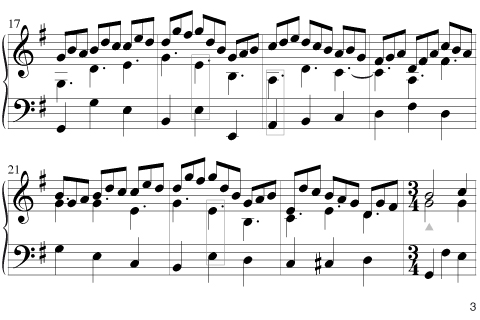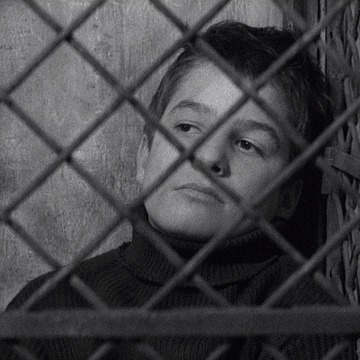
I started this blog at an earlier time on the internet (as the many broken links and defunct sites linked to on earlier posts suggest). One of my thoughts was that it would be a place where I shared what I liked, and people might come here for one thing, and then check out others—and if they found that my taste was a good fit for theirs, this would be a place they might turn to more regularly, to follow along with me. It would reflect my sensibility—it’s there in the subhed—and if people liked it, it would be a guide, a curation of movies, music and the like of interest.
One of the perils and promises of the current moment on the internet is the vast, unimaginable volume of… of stuff we have available. Do a search for underwear on Amazon and you’ll be overwhelmed, spammed, swamped with choices. And unfortunately many of them will be lousy and it will be quite hard to figure out which are not—maybe less so with underwear, but certainly with things like tech gear. I mean, how many iPhone cables can there possibly be? Are they all equally good/garbage? How can you even tell?
Things have gotten better in some respects, but worse in more since I started this. Many of my music links are dead because the blogs or websites that hosted them are gone, some probably taken down in response to copyright infringement. But I suspect in part because of such copyright infringement, so much more “legit” music is now available on YouTube. It’s rare these days that there’s a song I want to listen to that I can’t find there, which was much less the case a decade ago.
But the loss of the blogs also means the loss of the curation they performed. Of their sensibilities. And so, in the vast undifferentiated realm of the internet, Google (gamed) search results and YouTube, how does one find the good tunes, the banging tunes, the ones that break your heart or melt your face? The good books, the good movies?
For many, perhaps most people, that has been for a while through largely algorithmically generated recommendations and lists—on YouTube, on Amazon, on GoodReads (i.e., Amazon), on IMDb (i.e., Amazon), on Spotify, etc. But there are a host of problems with this, problems that have been getting more and more attention in recent years, and seem likely to get worse—much worse—as these corporations rush to embrace AI (machine learning and LLMs, etc.—basically just better, faster, leaner and meaner algorithms, with unclear but little human crafting).
The issue of gatekeeping, taste-making and algorithms came in for some academic scrutiny even before “we marveled at our magnificence as we gave birth to AI” (“we” being corporations looking for paths to profit without paying workers).
We argue that music streaming platforms in combining proprietary algorithms and human curators constitute the “new gatekeepers” in an industry previously dominated by human intermediaries such as radio programmers, journalists, and other experts. The article suggests understanding this gatekeeping activity as a form of “algo-torial power” that has the ability to set the “listening agendas” of global music consumers. While the power of traditional gatekeepers was mainly of an editorial nature, albeit data had some relevance in orienting their choices, the power of platform gatekepeers [sic] is an editorial power “augmented” and enhanced by algorithms and big data. Platform gatekeepers have more data, more tools to manage and to make sense of these data, and thus more power than their predecessors
Bonini, Tiziano, and Alessandro Gandini. “‘First Week Is Editorial, Second Week Is Algorithmic’: Platform Gatekeepers and the Platformization of Music Curation.” Social Media + Society, vol. 5, no. 4, Oct. 2019, p. 2056305119880006. SAGE Journals, https://doi.org/10.1177/2056305119880006
It is not just those old blogs as taste-makers and sensibilities that have been lost, but almost all of the previous “gatekeepers” that Gen X and older millennials grew up with. Reviews in newspapers and, more quirky and independent, free weeklies like the old versions of the East Bay Express and SF Weekly. The programmers at the local art house/rep cinema. The “staff picks” shelves at shuttered bookstores or video rental places. A favorite DJ at a favorite radio station—though some college radio stations are hanging on and there are new, internet-enabled things emerging like BFF.fm (“Best Frequencies Forever”) with amateur and new professional DJs doing interestingly quirky and diverse programs—San Francisco-based and genuinely excellent, which you can listen to online from anywhere in the world. And some radio stations still seem to do things well, like Australia’s triple j, with its “hottest 100.”
And podcasts as well, an area I must confess I haven’t really dug into much, beyond a few predictable ones, ones that are actually mainstays for me, and serve a lot of that gatekeeping/curatorial function, on non-profit systems so not (yet) (as) subject to the profit-making and algorithmic modes that drive most other things these days, like NPR’s All Songs Considered and Pop Culture Happy Hour. Or Mark Kermode’s Screenshot on the BBC, or his podcast with Simon Mayo, successor to their excellent, wildly popular radio programme on BBC 5 Live, which ended in 2022. (Here’s a nice clip prepared as a goodbye.)
(This is all a bit rambling, for which I apologize. There’s always this tension between getting something out there, and getting something really tightly written, and with my current situation, I just don’t have the time for “tight.”)
The big takeaways, the points I’ve been trying to get around to making:
- Algorithmic “taste-making” is not about taste-making at all really—more like force feeding. Profit-making and gatekeeping in a bad way, keeping you within the known, predictable, profitable and corporate-controlled.
- Spotify is the devil. Also Amazon, despite my ubiquitous links to that site. (I’m switching to Bookshop.org for books, which supports independent bookstores and lets me do shelves / lists.)
- While taste-making blogs have declined fairly precipitously in the face of the increasingly corporate, dull and damaged internet, there are still some out there, and you should find them.
- There are also some other genuinely interesting “radio” programs and review sites, and you should seek them out. Listen to BFF.fm.
- Almost certainly, they will all be independent and/or controlled by not for profit entities like NPR, BBC, Australia’s ABC.
- Seemingly independent things that start up, like GoodReads, if they start to get any real traction in taste-making and gatekeeping, are likely to get gobbled up by some corporation, probably either Amazon or Google, which will then use them to suck you back into their corporate maw.
When I get some time, I’ll try to return to this and… tighten up.
Filed under: Ideas, Interweb, Pop Culture, Film, gatekeeping, internet, music















